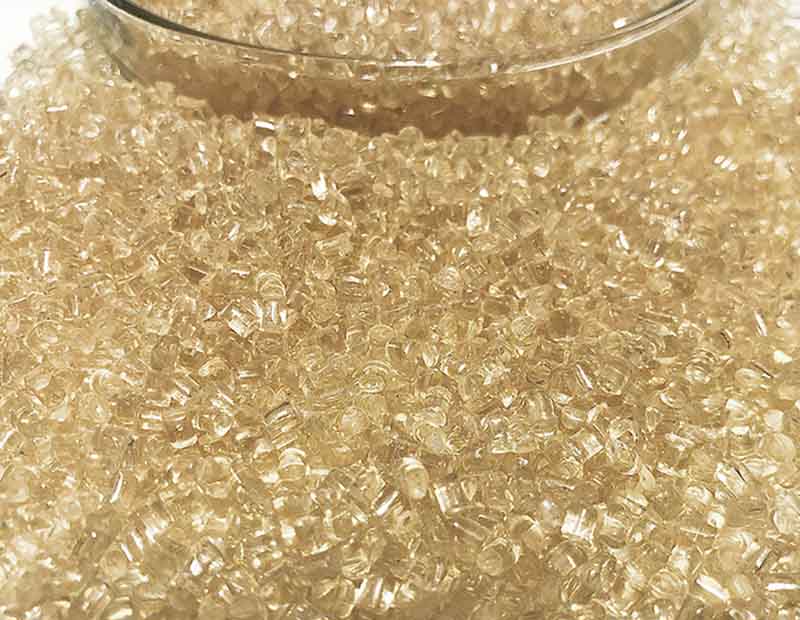
Polyethersulfone is a high-performance engineering plastic with excellent properties. Its high temperature resistance, chemical stability and mechanical properties make it ideal for a variety of applications. PES has a temperature resistance of over 200°C and is resistant to chemical corrosion. It is often used in the manufacture of medical devices, electronic devices, automotive parts and aerospace components. Its high strength, stiffness and wear resistance make it popular in engineering fields.
High Thermal Stability
PES can withstand high temperatures without losing its structural integrity, with a heat deflection temperature of around 200°C. This makes it suitable for applications requiring sustained exposure to heat.
Outstanding Mechanical Strength
With high tensile strength and impact resistance, PES is ideal for environments where materials must endure mechanical stress and wear.
Excellent Chemical Resistance
Polyethersulfone is resistant to many acids, alkalis, and solvents, making it suitable for use in chemically aggressive environments.
Dimensional Stability
PES has low moisture absorption and minimal thermal expansion, which ensures consistent performance in fluctuating conditions, such as in electronics and industrial equipment.
Transparency and Colorability
PES is naturally transparent, allowing for optical applications. It can also be colored without impacting its mechanical or thermal properties.
Electrical Insulation
PES has excellent electrical insulation properties, making it a preferred choice for electronics and electrical applications.
High Durability: The inherent strength and resistance to wear make PES durable in demanding applications.
Biocompatibility: PES is biocompatible and commonly used in medical and food contact applications.
Flame Retardant: This polymer is inherently flame-resistant without needing additional additives, adding safety in high-temperature environments.
Hydrolysis Resistant: PES remains stable even with prolonged exposure to water and steam, making it ideal for sterilizable products.
Medical and Healthcare Equipment
PES is used in surgical instruments, sterilization trays, and medical filters due to its biocompatibility, high sterilization capability, and durability under autoclaving conditions.
Water and Gas Filtration
PES membranes are widely used in water filtration, dialysis, and gas separation because of their superior chemical resistance and stability in both aqueous and gaseous environments.
Electronics and Electrical Components
Due to its insulating properties, PES is used for printed circuit boards, connectors, and other electronic components that require high-temperature resistance.
Aerospace and Automotive
Its durability, chemical resistance, and lightweight nature make PES suitable for demanding applications in aerospace and automotive, such as fuel system components and electrical insulators.
Food Processing Equipment
PES’s heat resistance and inert nature make it ideal for applications that require food contact, such as coffee machine components and other high-temperature processing equipment.
Granules and Pellets: Used for injection molding and extrusion processes in the production of various industrial parts and components.
Films and Sheets: Employed in applications needing transparency, dimensional stability, and chemical resistance, like display screens or protective coverings.
Membranes: PES membranes are extensively used in filtration applications due to their fine porosity, chemical resistance, and durability.
Foams: PES foams are utilized for lightweight applications, providing thermal and acoustic insulation.
FAQ
What is Polyethersulfone (PES), and what are its primary characteristics?
Polyethersulfone (PES) is a high-performance thermoplastic polymer known for its excellent thermal stability, mechanical strength, and chemical resistance. Its low moisture absorption, biocompatibility, and transparency make it ideal for demanding applications across multiple industries.
In what industries is PES commonly used, and why?
PES is widely used in healthcare, filtration, electronics, automotive, aerospace, and food processing due to its durability, chemical resistance, thermal stability, and biocompatibility. It’s especially valued in environments requiring sterilization, chemical exposure, or high temperatures.
Why is PES suitable for medical applications?
PES is biocompatible, hydrolysis-resistant, and can withstand repeated sterilization processes, including autoclaving. It’s used in surgical instruments, medical filters, and components where consistent sterilization and biocompatibility are essential.
What are the thermal properties of PES, and how do they benefit industrial applications?
PES has a high heat deflection temperature (around 200°C), which allows it to maintain stability under prolonged high temperatures. This makes it ideal for high-temperature applications, such as electrical insulation in electronics and components in automotive and aerospace industries.
How does PES perform in environments with chemical exposure?
PES exhibits excellent resistance to a wide range of acids, alkalis, and organic solvents, making it durable in chemically harsh environments. This characteristic is valuable in filtration, industrial processing, and medical applications.
What makes PES an effective material for filtration applications?
PES membranes are porous, chemically resistant, and thermally stable, making them highly effective for filtration in both liquid and gas applications. PES is commonly used in water purification, dialysis, and gas separation due to these properties.
How does PES compare to other polymers in terms of moisture absorption?
PES has very low moisture absorption, enhancing its dimensional stability and strength in humid or wet environments. This makes it superior to many other polymers in applications where exposure to moisture or steam is frequent.
What types of PES forms are available, and how are they typically used?
PES is available in various forms, including granules and pellets for molding, films and sheets for protective applications, and membranes for filtration. Each form is tailored for specific uses, such as parts manufacturing, transparent panels, and water purification systems.
Why is PES a preferred material for food contact applications?
PES’s heat resistance, non-toxicity, and chemical stability make it safe for food contact. It doesn’t release harmful substances and maintains its properties under high temperatures, making it suitable for coffee machines, food containers, and processing equipment.
How does PES contribute to sustainability and long-term performance?
PES's durability and resistance to environmental degradation contribute to its longevity, reducing the need for frequent replacement. Its chemical resistance and low maintenance requirements make it a sustainable choice for applications requiring high performance over extended periods.